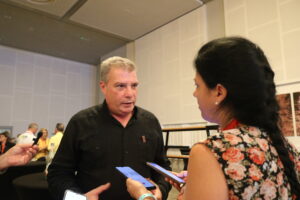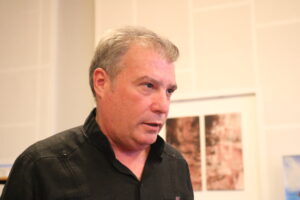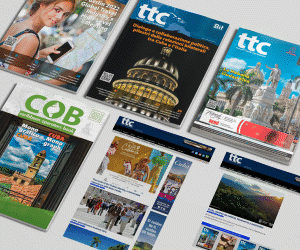Cuba bets on the MICE segment. Interview with the Minister of Tourism

Photo: TTC
By: Daily Pérez Guillén
When Cuba was chosen as the venue for the 39th Congress of the Federation of Latin American Congress Organizing Entities, its coordinators visited the country to evaluate and adjust all the conditions for this international meeting.
Luis Ricardo Martínez, president of Cocal, this is how this regional entity is known, asked his hosts: Do you think that there could be Internet here? If possible. Do you think that an event can be held here with technology that connects people? Everything is possible.
From that optimism and those real conditions was born the slogan of this regional meeting that was held at the Hotel Meliá Internacional de Varadero.
The memories have been shared by the Minister of Tourism of Cuba, Juan Carlos García Granda, when we asked him about the results of the recent days of shared knowledge and learning around the events, congresses and meetings industry.
“In the years before the pandemic, we reached important levels of holding events in Cuba. Since that time we had an infrastructure created and undoubtedly one of the main objectives to recover tourism is the commitment to this market segment. These two days have given us a lot because they have changed the way in which we saw the benefits of this activity. The way of organizing events is updated, the use of new technologies, concepts such as sustainability and accessibility are defended, and even the fact of becoming a unique experience that contributes to human beings.
It’s all about the values we want to reaffirm in the tourism industry and so reflect the image of what’s Cuba and its touristic product. Undoubtedly, the more events we hold in Cuba, the faster we will obtain the recovery that we so desire in the face of the difficulties with the main issuing markets.”
Convinced of the contributions of this market segment for Cuban tourism, but also of its competitiveness, García Granda anticipated that he will make “some corrections in the strategy they have; for example, he believes that event organizers should be trained. There are many institutions that hold events and it’s necessary to address these people.»
During the two days of expositions, the Cuban headline remained attentive to the presentations, and even shared Cuba’s experiences in risk situations such as cyclones. After listening to what was said by experts and businessmen from Latin America and the world, he drew his own conclusions: “We have solved many of the problems discussed here. This very hotel where we are (Meliá Internacional Varadero), has built-in intelligence. Here there is energy saving as part of its design. Here there is sustainability because it was designed after having destroyed the previous International Hotel to protect the beach and nature, we moved it to an area outside the dune, compatible with the environment. Here there is a strategy for consuming water.

Minister of Tourism of Cuba, Juan Carlos García Granda. Photo: TTC
“Despite the scarcity of material resources we have, we make great efforts to make everything sustainable. For many years our products have been biodegradable. It was interesting to see in today’s conference that we are not the only ones, the whole world has joined this commitment that, since 1992, Fidel, in Rio de Janeiro, defended with that well-known phrase “A species is in danger of extinction.” : the man”. Fidel made us see and forced us to take a look at that environmental commitment.”
An essential piece for event management lies in the field of communication. For the Caribbean country it is a pending and urgent task in the midst of its media reality. “We are prohibited from accessing the major media. We are an island where everything is distorted. So the role of the media is very important. We have to do tourism without accessing these large communication platforms, “says the minister.
Faced with this scenario, one of the most important sectors for the Cuban economy has great challenges. «Our challenges this year and next will be very difficult to achieve. We are not going to say that it is impossible because we would betray the slogan of this event “Everything is possible”. It depends on the international scenario in which we move. We have it much more difficult than everyone here.
«Despite not having met the number of visitors, we have met the planned tourist-days and we have obtained the income. As a minister I fight for visitors like everyone else. Why? Because of the visitors, where they aren’t sufficient in number. They aren’t enough for what the enemy says he defends, which is the private sector, self-employed. There are not enough clients in private houses. There are not enough customers coming to the private restaurants. My job as a minister is that there are enough clients for everyone because that brings prosperity and drags down the different economies, including the family one, not just the state one.
«Today the deficiencies that we all know we have can only be replaced in one way and that is by fighting to export and we play a fundamental role, like other ministries, in the export of services. But I am not satisfied with what I have obtained, I would have to have ten million visitors and a lot of prosperity and happiness in my country.»
Undoubtedly, a congress like Cocal, organized and with the participation of professionals who know the sector, has given Cuba the possibility of making visible its potential for MICE tourism. In this context, García Granda opines:
«When the Covid arrived, the expert groups said that tourism was going to disappear, that an event like this was not going to be done again, especially by videoconference, that people were going to be suspicious and would not want to have contact, the “people to people”. We cannot give that up, we are human beings. We are doing tourism, the world is doing tourism and it is recovering, quite the opposite of what was said at that time.
«People have raised the order of priority from their economic decision and have positioned travel much higher because it transmits knowledge and culture. It is a right in a world where communication is already much faster and everything is much closer. I believe that the tourism sector has many present and future possibilities. In Cuba and in all parts of the world it also brings progress, prosperity and also drags down the economy of the countries or at least plays an important role in the GDP.”

MORE NEWS










